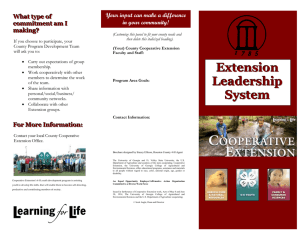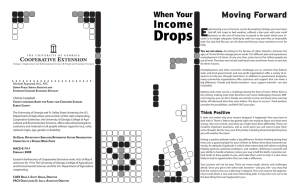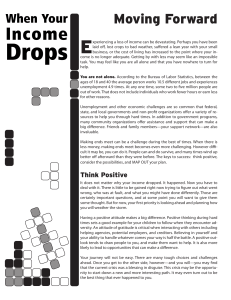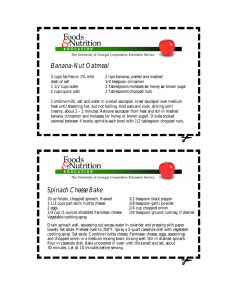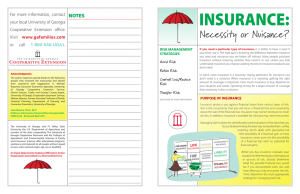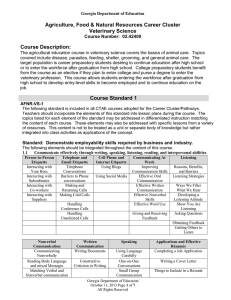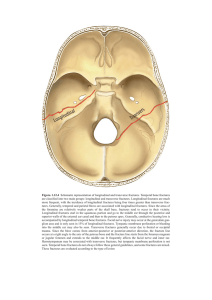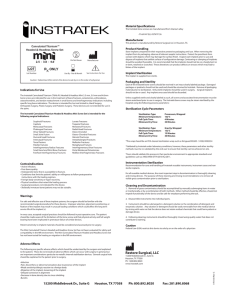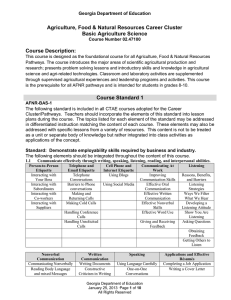Benefits of Physical Activity for Older Adults
advertisement
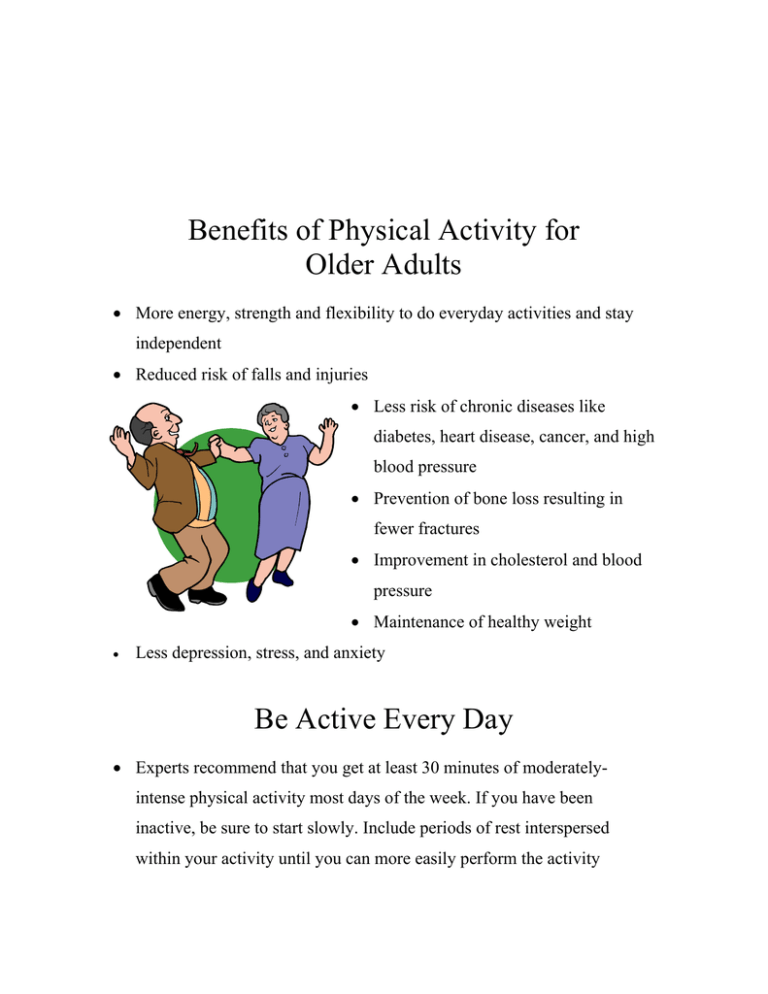
Benefits of Physical Activity for Older Adults • More energy, strength and flexibility to do everyday activities and stay independent • Reduced risk of falls and injuries • Less risk of chronic diseases like diabetes, heart disease, cancer, and high blood pressure • Prevention of bone loss resulting in fewer fractures • Improvement in cholesterol and blood pressure • Maintenance of healthy weight • Less depression, stress, and anxiety Be Active Every Day • Experts recommend that you get at least 30 minutes of moderatelyintense physical activity most days of the week. If you have been inactive, be sure to start slowly. Include periods of rest interspersed within your activity until you can more easily perform the activity continuously for at least 30 minutes. You can divide it into several sessions of 5-10 minutes each in the beginning. • These are some examples of the types of activities that can be done with moderate intensity: Brisk walking Yard work Bicycling Vacuuming Swimming Sweeping floor Dancing • Don’t forget to stretch every day. Flexibility and stretching exercises improve flexibility, coordination and balance. Increase Your Strength - No One is Too Old Strength training twice a week has been shown to be very beneficial in older adults - even in their 90s. • Prevents loss of muscle that occurs with age • Increases strength and improves balance • Helps prevent falls • Reduces risk of fractures associated with bone disease Use light weights or strengthening machines 2-3 times per week. Be sure to get proper instruction from someone with formal exercise training. The University of Georgia and Ft. Valley State University, the U.S. Department of Agriculture and counties of the state cooperating. The Cooperative Extension Service and the University of Georgia College of Agricultural and Environmental Sciences offer educational programs, assistance and materials to all people without regard to race, color, national origin, age, sex or disability. An Equal Opportunity Employer/Affirmative Action Organization Committed to a Diverse Work Force Bulletin # FDNS-E-89-13 Date March 2003 Issued in furtherance of Cooperative Extension work, Acts of May 8 and June 30, 1914, The University of Georgia College of Agricultural and Environmental Sciences and the U.S. Department of Agriculture cooperating. Gale A. Buchanan, Dean and Director


